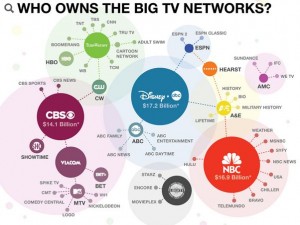Last night’s rout of the Democratic political achievements in the up-righting the economy, advancing health care coverage to more Americans than ever before, cutting the budget deficit and reducing employment, among others, have not gained traction in the electorate due to a ignoring an important persuasive tool: propaganda.
Propaganda is difficult to define.
“Most students of [propaganda] agree that propaganda has to do with any ideas and beliefs that are intentionally propagated. They agree also that it attempts to reach a goal by making use of words and word substitutes (pictures, drawings, graphs, exhibits, parades, songs, and similar devices). Moreover, although it is used in controversial situations, most experts agree that it is also used to promote non-controversial, or generally acceptable, ideas. Types of propaganda range from the selfish, deceitful, and subversive to the honest and aboveboard promotional effort. It can be concealed or open, emotional or containing appeals to reason, or a combination of emotional and logical appeals.”
Propaganda is also an age-old communications tool essential to politics, That’s because politicians realized long ago that if politics is defined as the use of persuasion to make people behave in a specified way (similar to advertising), than propaganda always has a role in politics.
No where is this more evident than in today’s information age. Despite all the rhetoric about the value of the internet, the great strides of the information age and its formative role in changing society, the internet has always been a main highway for propaganda.
The internet, combined with the consolidation of cable and broadcast ownership as a result of the Telecommunication Act of 1996, , has put more TV outlets into the heavily−capitalized hands of huge media conglomerates (Disney, AOL-Time Warner, Viacom, General Electric, (owner of NBC,) News Corporation (including FOX and Wall Street Journal), Yahoo!, Microsoft, Google)

At the same time, Americans have, of necessity, become more focused on life-essential issues as a result of limited social mobility, wage stagnation, the strains of living in households where both parents have full-time jobs, and wealth destruction as a result of the last recession.
All this makes it easier than ever for propaganda’s slanted and intentionally misleading news and daily political messages to be broadcast without any fear of recourse. Money also makes this worse as a result of the near-unlimited amounts of money donated to campaigns as a result of the Citizens United Supreme Court decision. ($4 billion spent on the 2014 mid-term election, according to Tom Brokaw of MSNBC.) Or put another way, as Colonel McCormick, publisher of the Chicago Tribune famously said, “Freedom of the press belongs to those who own one.”
So much for free speech, especially when large media outlet owners can correctly point out that anyone can own a web site and publish anything they want, regardless of quality and consequences.
Dems Too Polite
So where does all this leave the Democrats? In the minority.
One way to construct a Democratic comeback is to review the basics of ethical, positive propaganda, so leaders can identify, combat and alert people about systemic lies in the public marketplace.
Here are a few key propaganda principles to watch for:
–Repeat the Big Lie. Whatever the lie (capitalism and the health care system are fair to all segments of Americans, there is great class mobility, all wars are justified, never cut the defense budget, Social Security should be privatized, America is always under attack by someone) repeat it incessantly in all pertinent communications.
–Accuse your opponent of doing exactly what you are doing. If you are misrepresenting the facts, always do them on a network which advertises itself as being “Fair and balanced.”
–Name calling. A great example is FOX personality Sean Hannity looking into the camera and calling guests, and his former co-host Alan Combs, “too liberal.” The most recent example of negative transference is aligning Democratic candidates as being too aligned to President Obama.
–Keep your opponent in the defensive. Never give an inch or acknowledge anything positive your opponent says.
–Take advantage of the “fair and balanced” journalistic axiom where both sides have to be presented, even when editors have to search hard for an opposing view. This
–Don’t be polite. Propagandists are aggressive and can look into the camera and knowingly repeat a lie. This is why popular TV commentators, such as Maria Bartoromo (who knowingly mis-state that McDonalds is against raising the minimum wage; not so: they support it.) and Larry Kudlow (who said there are no victims as a result of the LIBOR price-fixing scam.) violate journalistic ethics. In contrast, MSNBC lets Republicans make silly claims without being challenged by their anchors and panel members.
There are many more examples of propaganda techniques, but the main mistake of many citizens, reporters and editors is that they are trained to believe that rational arguments dominate behavior. Not so. Maybe it’s time for Democrats to acknowledge the importance of propaganda, get tough and get more emotional. It should also produce some positive results.










